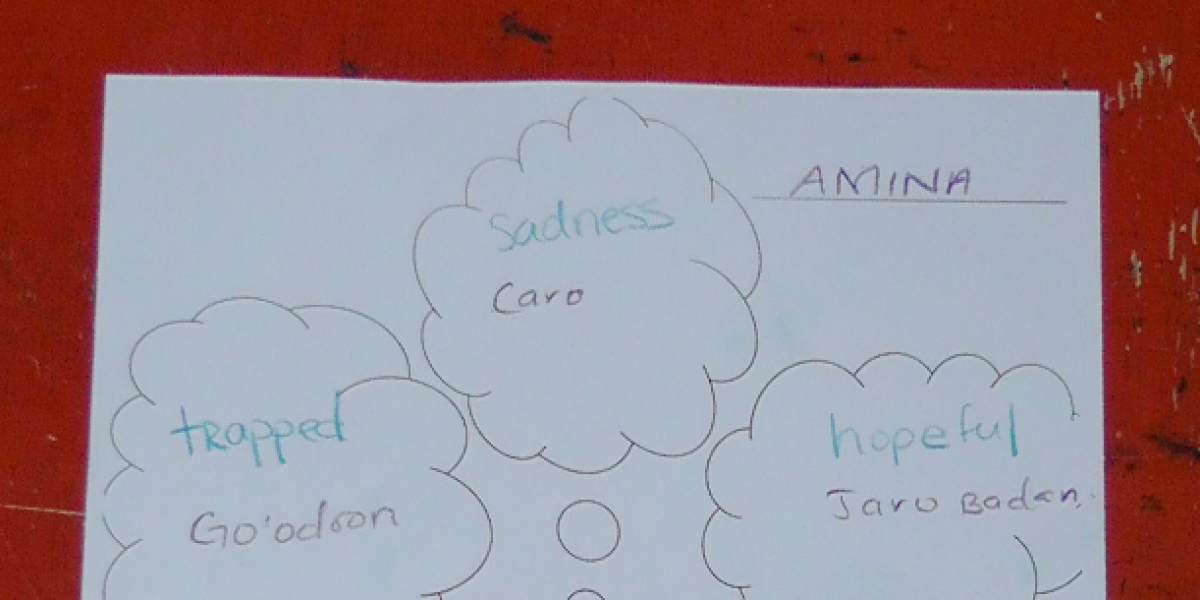Thailand: Psychosocial Accompaniment for Women & Girls in Bangkok
10 June 2015|Nick Jones

Bangkok, 10 June 2015- The sessions of group psychosocial counselling that JRS Thailand provides to women and to unaccompanied girls help build a sense of normalcy in an abnormal setting. These women and girls are almost all survivors of rape, SGBV, or domestic violence and they are without suitable coping skills that any individual can expect to have in such circumstances.
Additionally, the shock of being in a different culture can be overwhelming and create tension, particularly for older women who are very embedded in their own culture. Surviving as a refugee requires necessary skill building and doing that means being proactive, something these women may not have had to do before. Previously dependent on a spouse or male figure back home these women and girls face challenges acknowledging opportunities that may be available, whether its simply walking outside alone or even accessing a livelihood.
Somali’s and Pakistani’s are the two largest women groups that JRS currently serves as part of its Urban Refugee Project in Bangkok. Due to the urban setting women and girls are typically spread out across the city. As opposed to closer settings that would happen in a camp, the urban setting leaves them with fewer mechanisms to build coping skills, which is why having these sessions are so vital.
Psycho-educational activities are a mainstay in women sessions, for therapeutic motivations, in order for the women to find a balance with their feelings and learn the symptoms of how one’s body reacts to the trauma they face. These sessions not only allow Pakistani women to feel less alone but these groups can build a sense of belonging to the community while they live here.
Jennifer Martin, a Psychosocial Counsellor who leads group sessions with women and girls explains, “They need to find a way to function in a place where they are considered illegal, which is why psychosocial activities are important.” She continues, “Group sessions help them feel less alone, it normalises their horrific experiences, when sharing with women who relate and they can also mirror positive behaviour for their own development”.
Today, young Somali girls gather around a table talking lively about the previous group session’s main activity from last week. Sharing nightmares and their previous experiences being trafficked was the topic of the activity and creating a collage of pictures to represent their nightmares and present them openly with the group.
Somali’s and numerous other refugees face war, systematic rape, and systemic oppression as tribal minorities. They flee out of necessity, paying massive fees to smugglers to reach western countries in hopes of safety. Soon, they realise they are abandoned, robbed, and at the start of a whole new unsafe life.
Amina, a Somali refugee, explains, “My nightmare begins with the man who raped me and my mother chasing after me, joined by the man who trafficked me here.”
She continues, “Smugglers tells us they can get us a job in the west and the Refugee Status Determination with UNHCR in other countries is easier so our families pay for us to go there to work and live, but instead I was flown into Malaysia then put into the back of a bus to cross into Thailand. They took my papers and I got left in a room with other Somali girls and told to wait.…All the while I had no idea where I was. Now, I am left with no papers or options.”
Group sessions with young Somali girls use creative art activities to meet significant needs of social and educational well being for single females seeking asylum in Bangkok. Most girls are survivors of sexual violence, and are at-risk for re-victimization in their vulnerable circumstances. These art activities allow for a form of expression so they can break out of the social isolation common in this population, and this group cohesion is a long-term protective factor as they navigate new dangers.
Jennifer explains the transformation seen due to these sessions. She says, “Seeing the girls quiet and stiff in the first session to then watching them socialising with one another like anyone else after our sessions makes me feel happy. After 8 sessions of fostering support and empowerment, I am sad to leave them.”
“They are funny, creative, and thoughtful girls who are finding their way with so much courage. But I know there are just too many others who also need psychosocial care, so we always continue to start new groups.”
Facing unresolved issues is a difficult thing but JRS group sessions continue to help these girls to adjust to their new surroundings and build confidence in daily life. The prospects for the future are too grey to predict but accompanying them through these sessions have become invaluable.
By Nick Jones in Bangkok, Thailand
*If you think encouraging this group and others like it is worthwhile and would like to join JRS in this important work, please consider sending messages of support, donating through our website and/or circulating this article to people you think might like to do the same.


